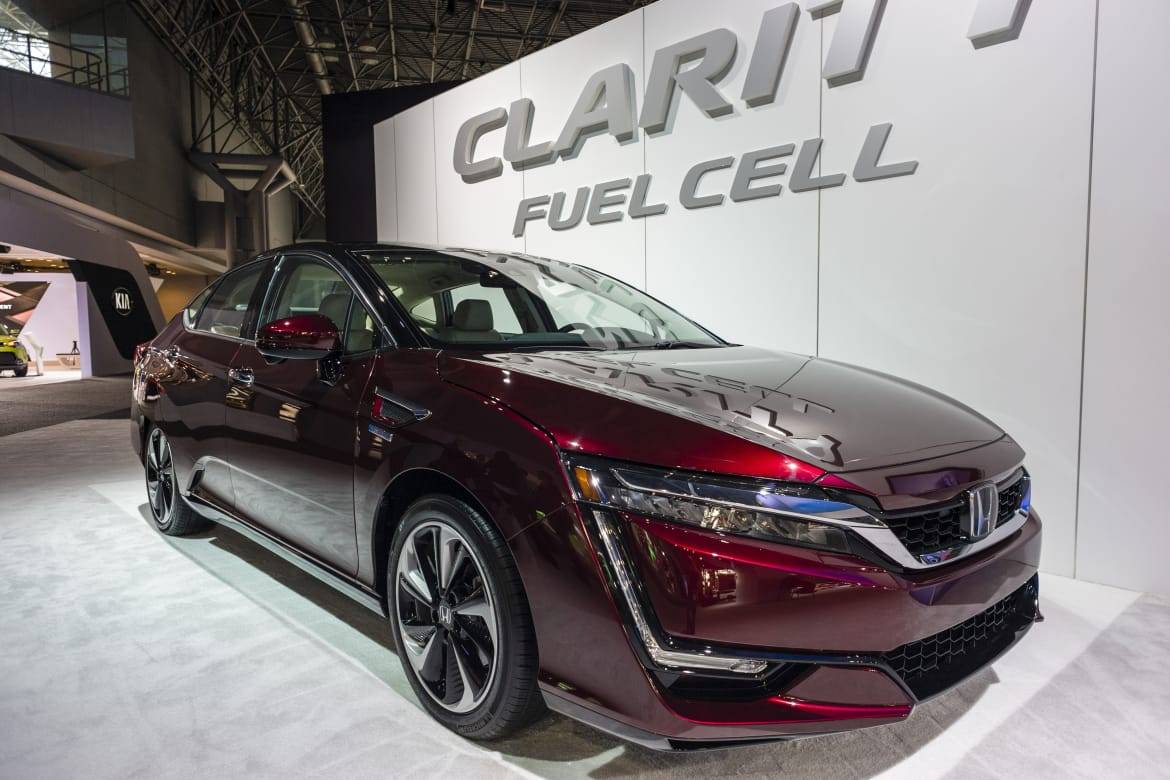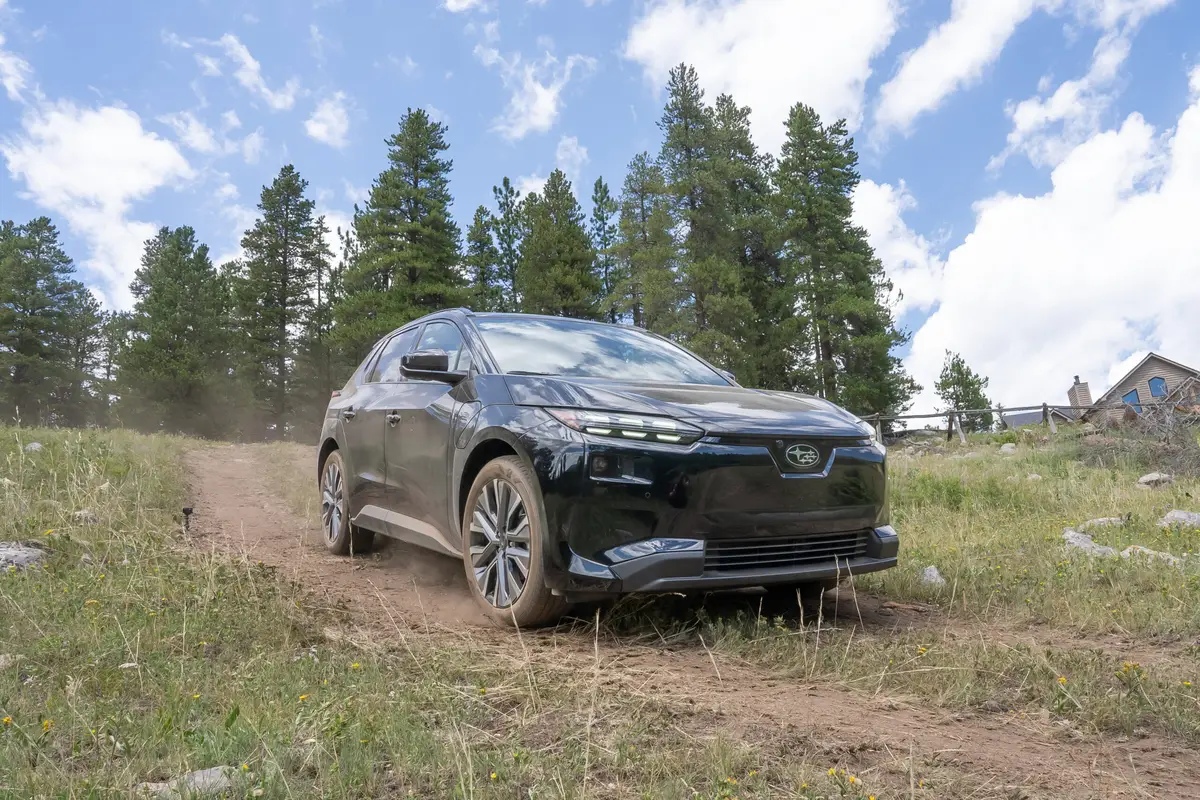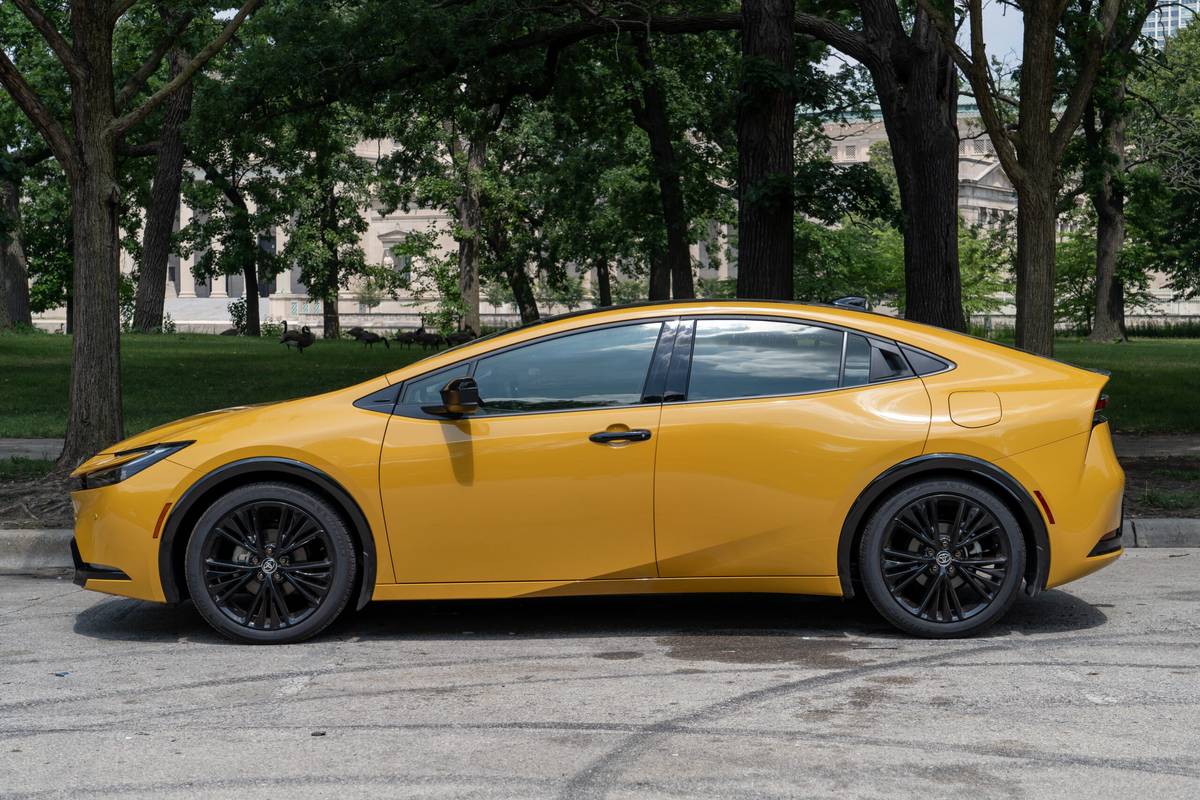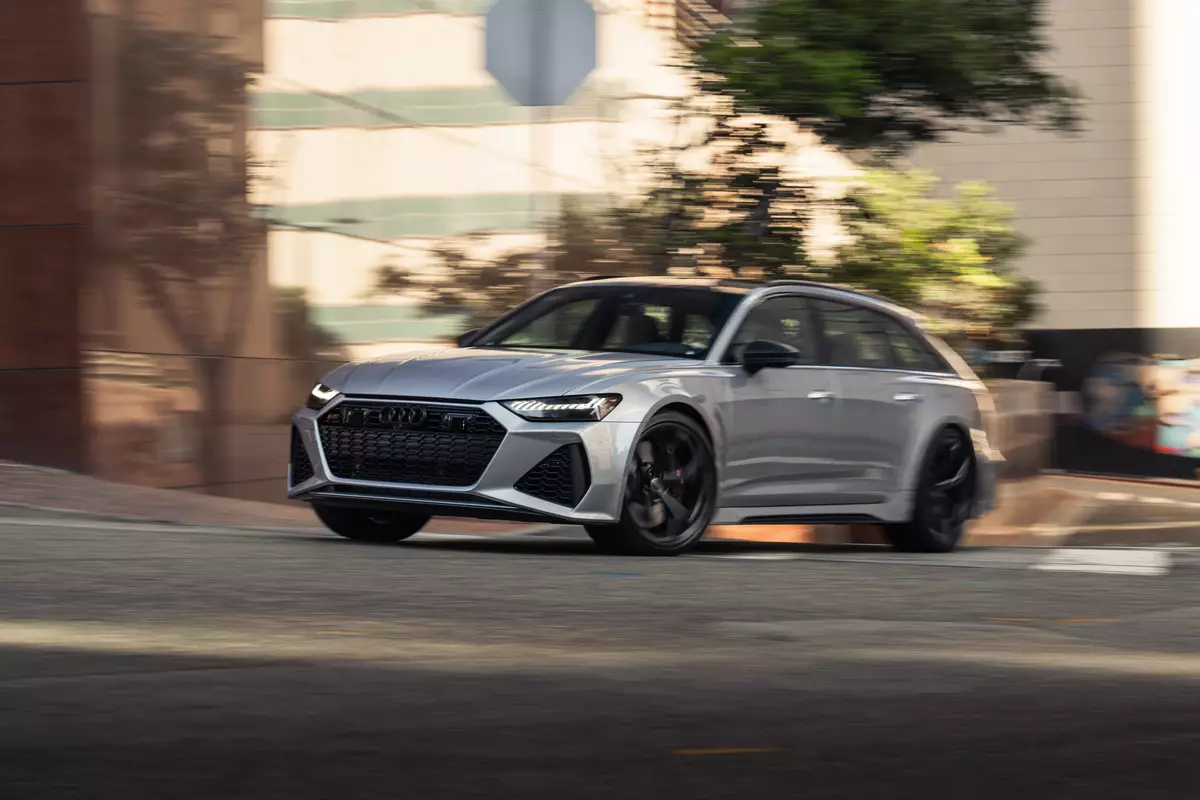GM, Honda Renew Fuel-Cell Tech Partnership

CARS.COM — General Motors and Honda announced today a renewed engineering effort to bring hydrogen-powered cars and trucks one step closer to the mainstream. The automakers are combining on the joint venture, Fuel Cell System Manufacturing, with the goal being the introduction of affordable, serial production fuel-cell vehicles by 2020.
Related: Study Pits Electric Cars Against Fuel-Cell Vehicles
GM and Honda have been working together on hydrogen-related automobile technology since 2013. This latest announcement focuses on the goal of bringing scalability and affordability to the automakers’ hydrogen efforts which, until now, have been relegated to prototypes or limited-run production models available only in select markets.
“Over the past three years, engineers from Honda and GM have been working as one team, with each company providing know-how from its unique expertise to create a compact and low-cost next-generation fuel-cell system,” Toshiaki Mikoshiba, president and CEO of Honda North America, said in a press release.
The challenge is making hydrogen vehicles much more affordable to the average car buyer. To this end, Mikoshiba said in the release that this venture will “create new value for our customers in fuel-cell vehicles of the future.”
No product details have been given, such as whether this technology will be applied to an upcoming car or SUV. It’s also unclear whether GM and Honda will co-launch hydrogen vehicles at the same time — to avoid the impression that one of the two is getting a head-start in the market for fuel-cell vehicles — or if either company might lump its hydrogen efforts in a new sub-brand.
Previous fuel-cell vehicles developed by the two auto giants offer hints as to what we might expect. One example is Honda’s Clarity Fuel Cell sedan, which can be leased for three years, at $369 per month, from a dozen Honda dealerships throughout California. With 366 miles of driving range, the Clarity Fuel Cell exceeds the driving range of traditional electric cars, like the Tesla Model S and Chevrolet Bolt EV. Finding a reliable source of hydrogen remains a serious obstacle, however; to that end, Honda sweetens the deal by offering a $15,000 fuel credit with each Clarity Fuel Cell lease.
“The expertise Honda has established that led to creation of the first-generation Clarity Fuel Cell system is valuable experience that we are leveraging in the joint development of the next-generation fuel-cell system with GM,” said Takashi Sekiguchi, managing officer and director and chief operating officer of automotive operations at Honda.
GM’s hydrogen-powered vehicle fleet has been plying public roads for more than a decade, though primarily as test beds for future production applications. One of GM’s most recent hydrogen-related programs is a fuel-cell pickup truck based on the Chevrolet Colorado and developed for the U.S. military. A previous civilian program was the Chevy Equinox-based HydroGen4, of which approximately 100 were produced as part of GM’s Project Driveway fuel-cell test program.
Charlie Freese, GM executive director of global fuel cell business, stated that upcoming fuel-cell systems will be “a fraction of the size and mass” of existing units. This points toward a program that could theoretically encompass everything from frugal city cars to full-size SUVs. But in the near-term, the bigger issue might be a lack of hydrogen refueling stations: According to the U.S. Department of Energy, there are 33 hydrogen stations available in the U.S., with the vast majority located in California.
Fuel Cell System Manufacturing will be based in, Brownstown, Mich., at a battery pack manufacturing site owned by GM. The combined investment of $85 million is expected to result in nearly 100 new jobs.
Featured stories

2026 Subaru Solterra Review: Necessary Improvements


2025 Toyota Prius Review: Big on Mileage, Small on Space


